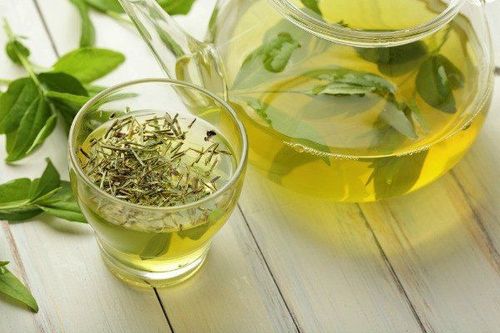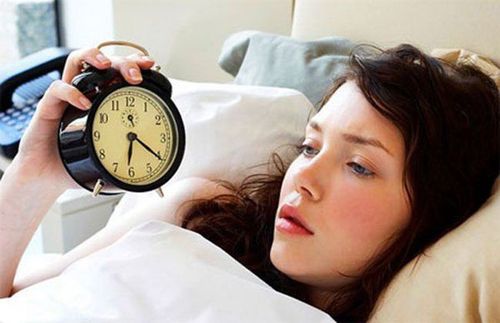Tea is a beverage that is loved and widely used by many people. For some individuals who are sensitive to tea, drinking it can cause various sensations such as tea intoxication, restlessness, and most commonly, insomnia.
1. Why does drinking tea cause insomnia?
Tea is a beverage that can have negative effects on sleep. Tea contains tannins, which are chemical components that stimulate and create a sense of relaxation. Therefore, for some people, drinking tea can make them feel sleepy.
However, tea also contains another component called caffeine, which maintains alertness and focus. Caffeine is the most widely used psychoactive substance in the world, most commonly found in coffee. Depending on the quality and type of tea, the caffeine content can range between 20 and 60 mg per 5 grams of tea.
According to general belief, the more fermented the tea, such as black tea, the higher its caffeine content. However, the truth is that all types of tea have relatively similar caffeine levels. Another factor that influences the caffeine content in tea is the type of leaves used. Tea made from older leaves contains more caffeine, while younger tea leaves have lower caffeine content.
In addition to the age of the leaves, the form of the tea product also affects the caffeine content in brewed tea. Whole-leaf tea usually contains less caffeine than tea bags. This is because tea bags contain crushed tea leaves, which allows the caffeine to be released more easily.

2. What to do if drinking tea causes insomnia?
2.1. Do light exercise
When drinking tea, it typically takes your body about 4 to 6 hours to fully metabolize the caffeine you’ve consumed. Therefore, engaging in light exercise after drinking tea can help you eliminate a lot of caffeine. Additionally, it also stimulates the production of serotonin hormone. This hormone helps with sedation and lulls you to sleep without causing an excessive rise in body temperature.
2.2. Lie still in bed
For those who are sensitive to tea or drink it in the evening, it can easily lead to insomnia, causing restlessness, itching, and difficulty focusing or falling asleep right away. What to do in this situation is lie still and motionless. A simple method is to just try to stay still, as your body will naturally relax and begin to release serotonin, a neurotransmitter. This will help you feel relaxed and fall into a deep sleep more easily.
2.3. Relax the mind, avoid thinking too much
When you can't sleep, you tend to think a lot. The more you think, the more you find it difficult to sleep. Therefore, during this time, the most important thing is to think lightly to relax the mind. This helps you to fall asleep more easily and quickly.
2.4. Avoid using electronic devices
Many people when having insomnia and struggling to fall asleep, usually automatically turn to electronic devices such as computers and phones. The light from these devices will make it even harder for you to sleep. In the case of insomnia caused by drinking tea, you should avoid using your phone. Instead, try reading a book or listening to soft music.
2.5. Drink a glass of warm milk
Right after doing the light exercises mentioned above, you should drink a warm glass of milk, such as nut milk or almond milk. This is also considered an effective method to help you fall asleep more easily.

3. Attention to limit insomnia caused by drinking tea
The reaction time of caffeine in the central nervous system is relatively shorter compared to other stimulants such as beer or alcohol. You should pay attention to reducing the caffeine content in tea. Some ways to reduce the caffeine level include rinsing the tea, using less tea when brewing, using water at a lower temperature, and steeping the tea for a shorter period.
Use less time and lower temperature.
- Because caffeine is a high-affinity component, when brewing tea, it is recommended to use warm water to limit the release of caffeine. This, similar to brewing green tea at a lower temperature, also helps the tea taste better, as caffeine has a bitter taste. Therefore, the less caffeine released, the less bitter the tea will be.
- In addition, you can also try brewing tea with cool water. The caffeine content in the tea will be reduced by one-third to half when brewed cold. The cold brewing method is also very simple; just put the tea leaves in a water jar, place it in the refrigerator for a few hours, and you’ll have a refreshing cold tea to drink.
Use herbal tea.
- All types of tea that are truly from the Camellia sinensis plant naturally contain caffeine. If you are very sensitive to caffeine and still want to enjoy a beverage like tea in the evening, you can try herbal tea.
- Herbal tea, also known as tisane, is made from various leaves, seeds, berries, and fruits such as chamomile tea. They do not contain caffeine, so you can drink them in the evening and still ensure a good night's sleep.
In summary, consuming 200-300 mg of caffeine daily is generally safe for most healthy adults. However, if you are still concerned about insomnia and are very sensitive to caffeine, or are taking certain medications, it is best not to drink too much tea. Additionally, avoid drinking tea within 4 hours before bedtime.
To arrange an appointment, please call HOTLINE or make your reservation directly HERE. You may also download the MyVinmec app to schedule appointments faster and manage your reservations more conveniently.


